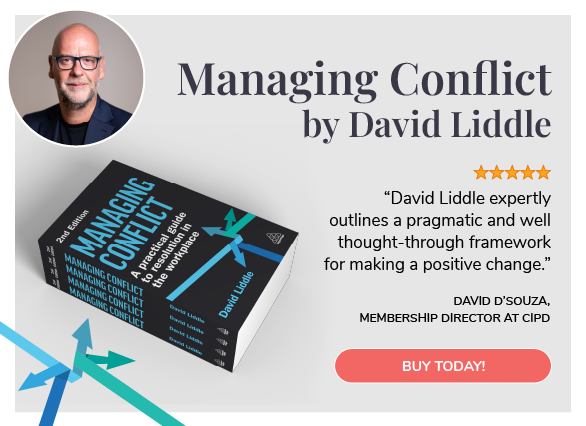
Share article:
Tags:
It is a very public dispute that has already affected millions of people, and the London Underground network could well be halted by further strikes before the situation is resolved.
The disagreement between Transport for London and rail unions over new working practices to enable an all-night service at weekends has been long running and, at times, bitter. The strike action that was due to take place on the 25th and 27th August was called off after mediation but the RMT union has announced plans for another walk-out in September if agreement isn’t reached.
So with both sides determined to prevail, what is needed to bring about a settlement that both sides can live with?
 TCM has worked with countless organisations that are dealing with apparently unsolvable situations, and has almost always found that with the right support and encouragement, common ground can be identified and agreement reached.
TCM has worked with countless organisations that are dealing with apparently unsolvable situations, and has almost always found that with the right support and encouragement, common ground can be identified and agreement reached.
Both sides in the London Underground dispute need to proactively work to find a solution based on consensus: what is it that will work for both sides? Neither side is going to get everything they want, but both can get close enough to satisfy their main priorities. As Owen Bubbers, TCM’s Principal Resolution Consultant says:
“Compromise is generally an essential part of any negotiated settlement. However, if both parties are genuinely willing to find an outcome, then it is possible for both sides to achieve most of their desired outcomes. This is what mediation is all about.”
The plans for a 24 hour tube service are a major change for staff at London Underground. Elaine Smit, Resolution Consultant at TCM, says she understands how this has become such a significant issue:
“When work and home life balance are involved and challenged, people tend to get emotional about the situation. Work demands and organisational growth sometimes leak over the predetermined line workers have when they took up their post, and navigating around finding a common ground between employers and employees is a tricky task.”
Tricky but absolutely imperative. And those tricky negotiations are not being made any easier by the further strike action already pencilled in. Owen Bubbers says the walk-outs announced by the union may be counterproductive:
“I’d suggest that although negotiating once a strike has been declared can bring a greater sense of urgency to proceedings, it can often prove to be an unnecessary ‘blocker’ that encourages both sides to retreat to their pre-established battle lines. In our culture, we tend to view hard-held, unchanging positions as an indication of strength and conviction. I’d suggest that a willingness to be flexible and adapt one’s position in the face of evolving circumstances requires greater confidence and courage.”
 It is often a failure to see the other party’s perspective that gets in the way of reaching a deal. Especially in an industry with a history of conflict, assumptions are often made about motives that may not be correct, yet become a real sticking point in talks. As TCM Resolution Consultant Bola Oginni says:
It is often a failure to see the other party’s perspective that gets in the way of reaching a deal. Especially in an industry with a history of conflict, assumptions are often made about motives that may not be correct, yet become a real sticking point in talks. As TCM Resolution Consultant Bola Oginni says:
“When parties are in conflict they often don’t listen to each other and one of the best ways to persuade others is with your ears. Both parties need to listen to each other, listening to understand each other’s perspective.”
So the negotiations need to be genuine negotiations. Both sides need to set aside their assumptions about the other in order to really listen to what is being said. There has to be an acceptance that both sides will have to give some ground to reach an agreement both are satisfied with. And there needs to be a restoration of trust before compromise can be agreed upon; only when trust is re-established can productive talks really begin.
Whether it is a dispute between two colleagues in the office or a dispute that threatens to bring our capital city to a halt, it is these same core principles of open and honest communication that will finally bring about a resolution.
TCM’s workplace mediation services resolve complex and challenging disputes – swiftly, effectively and with as little disruption as possible.








